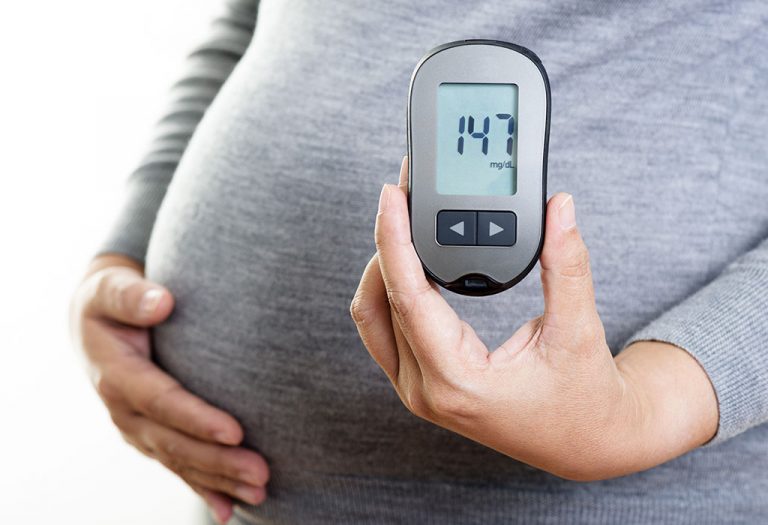Missed Miscarriage – Causes, Symptoms and Effects
Pregnancy is an uncertain journey; several expectant mothers experience challenges they were never prepared for. Missed miscarriage is one such experience some mothers go through. Unlike typical miscarriages, where bleeding and cramping signal the pregnancy loss, a missed miscarriage is often discovered during a routine ultrasound when no fetal heartbeat is detected. It is a pregnancy complication; therefore, it is very important every expectant mother should have a clear idea about it. This will help you to get the proper treatment for the same at the earliest. Read on to know more about missed miscarriage, its causes, signs and tips for dealing with the loss.
What Is a Missed Abortion?
A missed miscarriage can be a very confusing term as it does not have any symptoms of cramping or bleeding. A missed miscarriage is also known as a silent miscarriage, as it has no specific symptoms of bleeding or cramping. A missed miscarriage means one could only feel mild symptoms like breast tenderness or nausea. You will only find out about the missed miscarriage when you undergo an ultrasonic scan when the absence of a fetal heartbeat confirms a missed miscarriage (1).
How Common Are Missed Miscarriages?
Unfortunately, about 20 percent of the pregnancies can result in a miscarriage, and this is within the first three months of the pregnancy. Thus the chances of a missed miscarriage are not completely uncommon. As per the missed miscarriage statistics, chemical pregnancies (miscarriage within the 5th week of gestation) accounts for about 50 to 75 percent of all miscarriages.
Causes of a Missed Abortion
Different factors can cause a missed abortion; here are a few common causes (2):
- Chromosomal Abnormalities – Genetic defects in the embryo, often due to abnormal cell division, are a leading cause of missed abortion.
- Hormonal Imbalances – Low levels of progesterone or other hormonal issues can affect the pregnancy’s viability.
- Maternal Health Conditions – Conditions such as diabetes, thyroid disorders, or autoimmune diseases may increase the risk.
- Uterine Abnormalities – Structural issues like fibroids or an irregularly shaped uterus can interfere with embryo implantation and growth.
- Infections – Certain infections, such as bacterial or viral infections, can negatively impact fetal development.
Signs of Missed Miscarriage
As mentioned earlier, there are no specific missed miscarriage symptoms. Normal miscarriage symptoms like vaginal bleeding, severe cramping or discharge of the foetal tissue are not present in this case. During the time of the missed miscarriage, the signs of pregnancy may continue as the placenta or corpus luteum will not have stopped releasing hormones (3). Some pregnant women may notice silent miscarriage symptoms like fatigue, breast tenderness, or nausea disappearing. Diagnosis of the missed miscarriage is made by a medical practitioner in the absence of a foetal heartbeat. During regular check-ups, if there is a missed abortion, an ultrasound will show the undeveloped foetus.
Diagnosis of Missed Miscarriage
A missed miscarriage cannot be diagnosed based on physical examination and medical history alone, as there are no reliable signs or symptoms. Therefore, doctors rely on laboratory tests and imaging techniques to confirm the condition.
- Beta-human Chorionic Gonadotropin (beta-hCG) Test – In a healthy pregnancy, beta-hCG levels rise at a predictable rate. Low or declining levels may indicate a nonviable pregnancy (4).
- Pelvic or Transvaginal Ultrasound – This imaging test helps visualise the pregnancy. In the case of a missed miscarriage, there is no fetal heartbeat, and the pregnancy may appear smaller than expected.
If hCG levels are above discriminatory levels but no pregnancy is seen on ultrasound, doctors may investigate for an ectopic pregnancy or early pregnancy loss.
What Can You Do After Diagnosing a Missed Miscarriage?
After the diagnosis of the missed miscarriage, you may need to undergo treatment to expel the foetal remains. The gynaecologist would suggest one of these ways (5).
1. Natural Process
When you find out about the missed miscarriage, you have a few options for treatment. However, you can always wait for nature to take its course and expel the tissue naturally.
2. Medication
Medication can be used to bring about contractions in the body to expel the remaining tissue. The result of the same is very similar to heavy periods. Your doctor will prescribe you pain medication as well to help you undergo the contractions.
3. Dilation and Curettage (D&C) Procedure
When the pregnancy is older than eight to nine weeks, a D&C procedure is recommended to remove the tissue inside the womb. During the process, you will be put under general anaesthesia. This process ensures complete removal of the tissue and thereby helps prevent infection. The process is similar to the case of abortion, but in this case, it is the removal of pregnancy that is already lost (6).
After the process of the miscarriage, couples have to wait between one to three menstrual cycles before trying to conceive again. This is to ensure complete healing of the womb and general well-being to be ready for the next pregnancy.
How Long Does it Take to Recover From a Missed Abortion?
Recovery from a missed abortion varies for each person. Physically, it may take a few weeks to a couple of months for the body to heal, with menstrual cycles typically returning within 4 to 6 weeks. However, emotional recovery, especially dealing with grief and loss, may take longer than physical healing for some women (7).
Effect of Silent Miscarriage on Future Pregnancies
After a missed abortion, your doctor will keep track of your future pregnancy through early scans and follow up with any treatment that could be required. In most cases, future pregnancies are quite successful. Thus, it is advised to keep a positive mindset or undergo counselling to avoid mental stress caused by a missed miscarriage.
Tips to Deal With the Loss
Missed miscarriage can be a depressing time for anyone. The loss of a baby could lead to feelings of immense sadness and depression. But, if you wish to plan another pregnancy, it is important for you to cope. Try these tips to heal from the loss and remain positive.
- Consult a good therapist and share your concerns, fears, worries, etc.
- Meditate every day to relax and keep your mind calm.
- Focus on your physical fitness; begin an exercise routine once the doctor gives the go-ahead, and follow a healthy, nutritious diet.
- Get your mind off the past and focus on a better future.
Becoming Pregnant After a Missed Miscarriage
Deciding when to try for pregnancy after a missed miscarriage is deeply personal and should take into account both physical and emotional well-being. It’s essential to talk with a healthcare professional before making any decisions. Generally, it’s recommended to wait for a few weeks to allow your body to heal and to ensure you’re ready emotionally and physically for another pregnancy. Keep in mind the following (8):
- It’s important to avoid sexual intercourse until all bleeding has stopped.
- Research shows that women who conceive within the first six months after a miscarriage may have a lower risk of experiencing another miscarriage.
- Trying again should only happen when you and your partner feel emotionally and physically prepared.
- If you decide to try immediately, it’s wise to wait for your first period to track accurate dates for a possible pregnancy.
FAQs
1. Can a missed miscarriage happen in a second pregnancy?
Yes, a missed miscarriage can occur in any pregnancy, though it is less likely to happen more than once. If you’ve had a previous miscarriage, your doctor may monitor your next pregnancy more closely.
2. Is there a way to prevent a missed miscarriage?
Unfortunately, there is no guaranteed way to prevent a missed miscarriage, as many are caused by factors beyond a person’s control, like chromosomal abnormalities. However, maintaining a healthy lifestyle, managing chronic conditions, and seeking early prenatal care can support overall pregnancy health (9).
3. Does having a missed miscarriage affect my fertility?
In most cases, a missed miscarriage does not impact fertility. Women often go on to have healthy pregnancies afterward. If you have recurrent miscarriages, however, it may be worthwhile to seek fertility testing or consult a specialist.
A missed miscarriages can be a challenging time for parents. It is important that you understand that it does not mean that you cannot conceive at all. With some support and a healthy lifestyle, you can cope with the loss and also increase your chances of another pregnancy.
References/Resources:
1. Missed miscarriage; Miscarriage Association; https://www.miscarriageassociation.org.uk/information/miscarriage/missed-miscarriage/
2. Miscarriage; NHS; https://www.nhs.uk/conditions/miscarriage/causes/
3. Missed miscarriage; Tommy’s; https://www.tommys.org/baby-loss-support/miscarriage-information-and-support/types-of-miscarriage/missed-miscarriage-information-and-support
4. Alves. C, Jenkins. S. M, Rapp. A; Early Pregnancy Loss (Spontaneous Abortion); National Library of Medicine; https://www.ncbi.nlm.nih.gov/books/NBK560521/
5. Miscarriage; Cleveland Clinic; https://my.clevelandclinic.org/health/diseases/9688-miscarriage
6. Dilation and Curettage (D&C); American College of Obstetricians and Gynecologists; https://www.acog.org/womens-health/faqs/dilation-and-curettage
7. What Happens After a Miscarriage? An Ob-Gyn Discusses the Options.; American College of Obstetricians and Gynecologists; https://www.acog.org/womens-health/experts-and-stories/the-latest/what-happens-after-a-miscarriage-an-ob-gyn-discusses-the-options
8. Schliep. K. C, Mitchell. E. M, Mumford. S. L, et al.; Trying to Conceive After an Early Pregnancy Loss: An Assessment on How Long Couples Should Wait; PubMed Central; https://pmc.ncbi.nlm.nih.gov/articles/PMC4780347/
9. Prevention-Miscarriage; NHS; https://www.nhs.uk/conditions/miscarriage/prevention/
Also Read:
Types of Miscarriage
Incomplete Miscarriage
Misdiagnosed Miscarriage
Bleeding after Miscarriage
Was This Article Helpful?
Parenting is a huge responsibility, for you as a caregiver, but also for us as a parenting content platform. We understand that and take our responsibility of creating credible content seriously. FirstCry Parenting articles are written and published only after extensive research using factually sound references to deliver quality content that is accurate, validated by experts, and completely reliable. To understand how we go about creating content that is credible, read our editorial policy here.



































